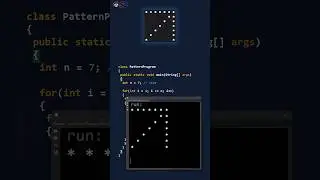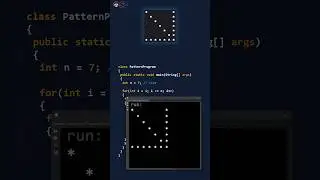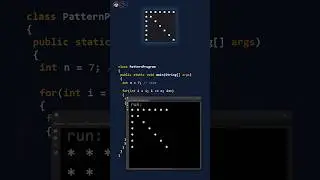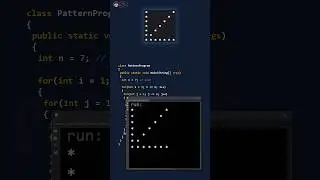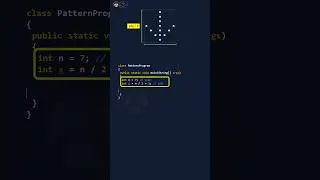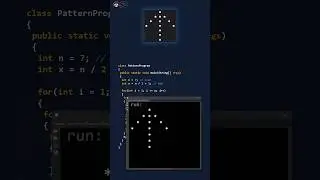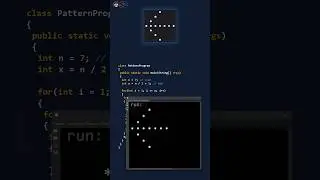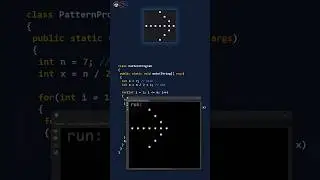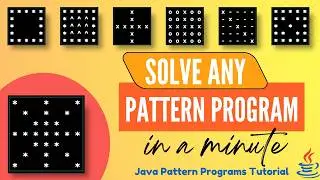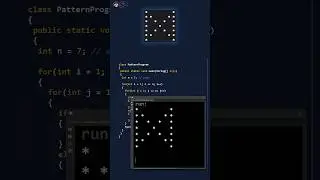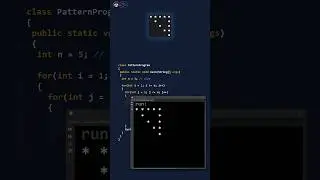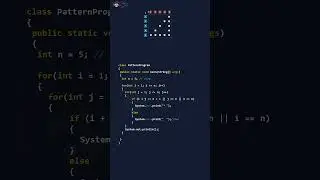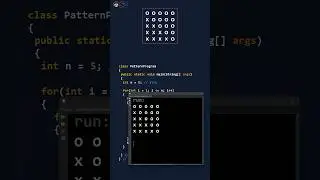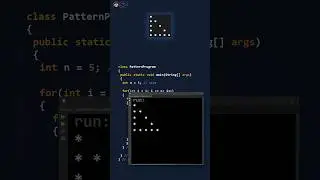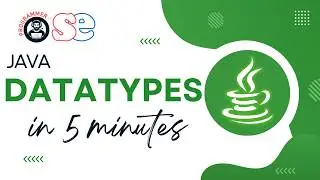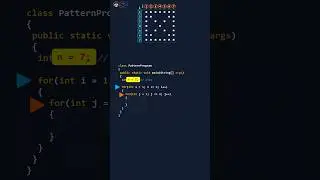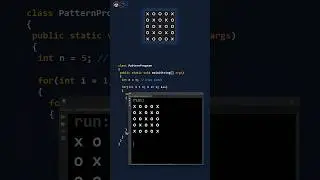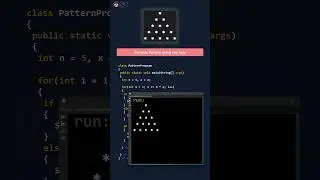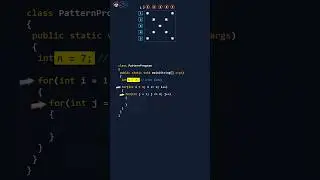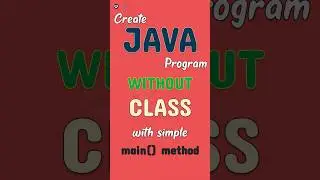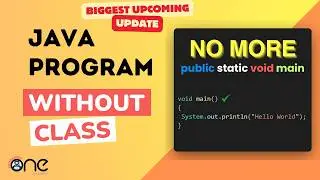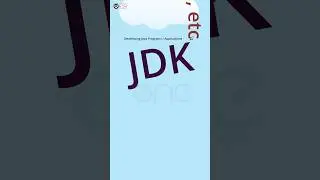Java program without class | void main in Java |Java New Updates
#jdk #javadevelopment #java #javabrains #softethics #coding #javaupdate #jdk21 #jdk22 #jdk23
Complete Tutorial - • Java program without class | void mai...
Hi learners, let's discuss the biggest upcoming Java update - Implicitly Declared Classes and Instance Main Methods.
Now we can create Java program without a class and even without bulky main method. Yes, that's right, NO MORE memorizing 'public static void main(String[] args)'.
Evolve the Java programming language so that students can write their first programs without needing to understand language features designed for large programs. Far from using a separate dialect of the language, students can write streamlined declarations for single-class programs and then seamlessly expand their programs to use more advanced features as their skills grow.
The Java programming language excels for large, complex applications developed and maintained over many years by large teams. It has rich features for data hiding, reuse, access control, namespace management, and modularity which allow components to be cleanly composed while being developed and maintained independently. With these features, components can expose well-defined interfaces for their interaction with other components while hiding internal implementation details so as to permit the independent evolution of each. Indeed, the object-oriented paradigm itself is designed for plugging together pieces that interact through well-defined protocols and abstract away implementation details. This composition of large components is called programming in the large. The language also offers many constructs useful for programming in the small — everything that is internal to a component. In recent years, we have enhanced both its programming-in-the-large capabilities with modules and its programming-in-the-small capabilities with data-oriented programming.
The Java programming language is also, however, intended to be a first language. When programmers first start out they do not write large programs, in a team — they write small programs, alone. They have no need for encapsulation and namespaces, useful to separately evolve components written by different people. When teaching programming, instructors start with the basic programming-in-the-small concepts of variables, control flow, and subroutines. At that stage there is no need for the programming-in-the-large concepts of classes, packages, and modules. Making the language more welcoming to newcomers is in the interest of Java veterans but they, too, may find it pleasurable to write simple programs more concisely, without any programming-in-the-large scaffolding.
A Hello, World! program written as an implicit class is much more focused on what the program actually does, omitting concepts and constructs it does not need. Even so, all members are interpreted just as they are in an ordinary class. To evolve an implicit class into an ordinary class, all we need to do is wrap its declaration, excluding import statements, inside an explicit class declaration.
Eliminating the main method altogether may seem like the natural next step, but it would work against the goal of gracefully evolving a first Java program to a larger one and would impose some non-obvious restrictions. Dropping the void modifier would similarly create a distinct Java dialect.
🔔 Stay Connected:
Subscribe:
/ @programmer_one
Explore on Web:
https://programmerone.com
https://softethics.com
Follow us on:
https://x.com/programmerone_
https://x.com/SoftEthics
Like us on:
https://fb.me/programmerone
https://fb.me/softethics
Study Stuff:
Apps:
Java Pattern Programs: https://fb.me/JavaPatternPrograms
SoftEthics Learner's App: https://n2s.in/learnersapp
Find study material and programs here:-
ON WEB:- https://codingdots.in/
For queries/suggestions/opportunities:
[email protected]
[email protected]
[email protected]








